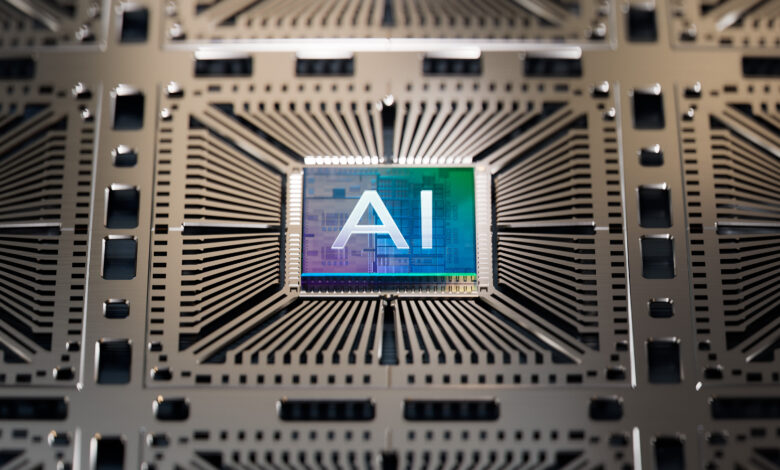Nvidia Is Leading the Artificial Intelligence (AI) Charge, But These 2 Companies Are Rising Stars

Nvidia’s GPUs are the sexier story, but advanced packaging companies may be the next big AI growth story.
AI chip leader Nvidia (NVDA 1.27%) will no doubt have very strong growth over the next year-plus. But while the chip designers like Nvidia and its would-be competitors garner a lot of headlines, the less sexy advanced packaging process is actually today’s big AI bottleneck.
That’s why these two under-the-radar advanced packaging tech stocks are primed to take off in 2025.
Advanced packaging companies will see revenue explode from AI demand. Image source: Getty Images.
What’s advanced packaging, and why’s it so important?
Packaging is the concept of connecting chips from different wafers together to create a unified computing system. While traditional electronics packaging has been used to good-enough effect for legacy applications like PCs, smartphones, and industrial chip systems, today’s AI systems require GPUs, CPUs, high-bandwidth memory (HBM), I/O controllers, and other elements to relay information at lighting-fast speed and as energy-efficiently as possible. Meanwhile, virtually all major chipmakers are beginning to use “chiplets,” in which the processor itself is constructed of different components produced on different wafers, then closely stitched together.
That requires new advanced packaging technologies, which first emerged around the year 2000, according to McKinsey. But hypergrowth for these newer technologies is now beginning.
Currently, Nvidia’s foundry and leader in AI chipmaking, Taiwan Semiconductor Manufacturing, has a shortage of advanced packaging capacity. TSMC will triple its chip-on-wafer-on substrate advanced packaging capacity this year to 45,000 to 50,000 wafers per month, yet TSMC has said that packaging capacity is already fully booked for the next two years. And with “AI PC” production kicking in this year, even Intel has recently found itself short on advanced packaging capacity for AI PC systems on a chip, according to Trendforce.
Onto Innovation
One way to play the advanced packaging trend is Onto Innovation (ONTO 7.64%). To be sure, investors have already somewhat caught on to the Onto story, with the stock up over 150% over the past year. But its growth runway should last through this decade
Onto makes equipment that serves several chipmaking processes crucial for AI. But its highest-growth segment is its Dragonfly wafer inspection tools for advanced packaging. These systems help detect imperfections in chip packages, especially microcracks in ultrathin wafers currently being used in highly dense AI and chiplet packages.
In Onto’s just-reported first-quarter earnings, management noted that Dragonfly system revenue grew 30% just over the prior quarter. Meanwhile, the whole Advanced Packaging segment, which comprises its Dragonfly and Firefly inspection systems as well as the JetStep packaging lithography equipment, grew 64% over the prior-year quarter.
While overall revenue grew “only” 14.9% last quarter, the Advanced Packaging and Specialty segment made up $161 million out of Onto’s $229 million total revenue, or 70%. So if advanced packaging continues its strong growth, Onto’s growth could accelerate.
Not only that, but Onto should also see a big lift from its other segments in metrology inspection equipment for advanced logic and memory nodes. Those segments have been through a big downturn over the past two years, but they should recover strongly. This is especially true for Onto as gate-all-around (GAA) transistor technology emerges next year for advanced chip nodes. Onto’s Atlas and Iris systems are likely to take significant share in metrology amid the GAA transition.
As advanced packaging inspection continues its rapid growth and GAA technology emerges, look for Onto’s financials to reaccelerate in 2025.
Kulicke & Soffa
Unlike Onto, Kulicke & Soffa (KLIC 0.33%) hasn’t seen its stock surge over the past year, with its stock just about flat over the past 52 weeks.
That’s probably because KILC’s business is still dominated by the traditional ball bonder legacy packaging business, which has seen a severe downcycle since mid-2022. While that segment is starting to recover, Kulicke & Soffa also serves the electric-vehicle (EV) battery packaging industry, and that segment has recently taken a hit as the EV market has decelerated. KLIC also serves the advanced display market, and it just saw a large next-gen project around microLEDs cancelled by a big customer, pushing that technology transition to later this decade.
Despite these headwinds, Kulicke & Soffa also has an emerging segment in advanced packaging, thermocompression bonding (TCB) technology, and advanced wafer-level packaging. TCB is just beginning to take off in a big way. On the recent conference call, management noted it had taken share from competitors at the world’s leading outsourced assembly and test (OSAT) and has engagements with 10 of the world’s leading foundries, OSATs, and integrated device manufacturers for TCB.
KLIC’s 2023 TCB revenue was just $60 million, but four times the amount in 2021. But TCB and newer wafer-level packaging processes techniques are on track to deliver a combined $200 million in revenue by fiscal 2025. For context, Kulicke had $736 million in trailing-12-month revenue. So in 2025, these high-growth advanced technologies will make up a more significant portion of the business.
In addition, KLIC’s management noted that its new vertical fan-out technology can reduce the form factor of memory packages by some 40%. While the first applications are just rolling out for low-power DRAM, management noted that one of its customers has a roadmap to use the packaging technology in HBM for AI applications, so that could also be a big AI opportunity.
In 2025, these advanced processes should take off, and the company’s other legacy businesses in traditional ball bonding and auto battery packaging should also recover. With a 1.7% dividend and an increasing amount of share buybacks, KLIC could very well be an AI laggard that bounces back in a big way next year.



